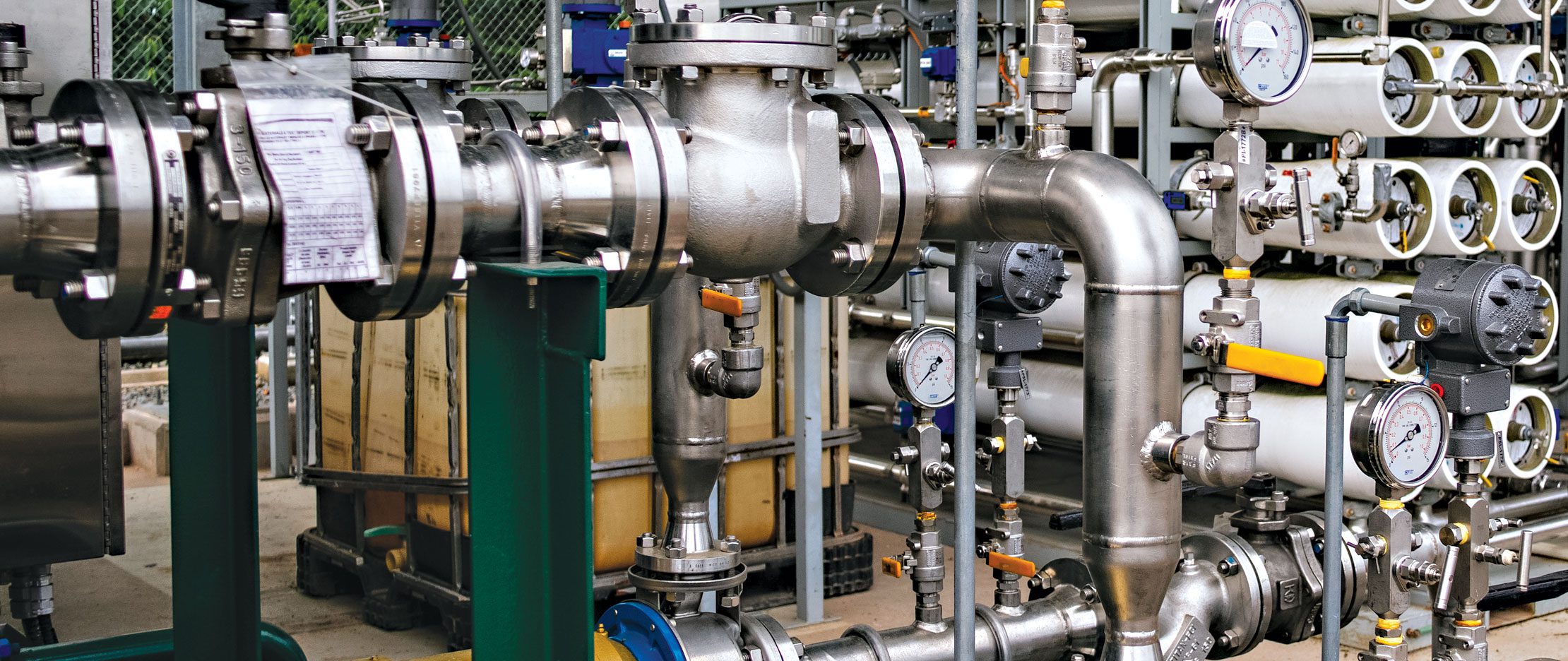
Process control systems are the backbone of efficient and reliable manufacturing operations, ensuring predictability, stability, and optimized performance across various industries. Whether managing the precise control of temperatures, pressures, or flow rates, these systems play a vital role in delivering consistent output, reducing waste, and upholding safety standards. At the heart of many process control systems lies the Proportional-Integral-Derivative (PID) loop—a powerful mechanism that, when properly tuned, can drive significant benefits for manufacturers.
Let’s examine the five key reasons why tuning PID loops is essential for improving your process control systems.
1. Achieving Predictability and Stability
The primary objective of any process control system is to maintain stability and predictability under varying conditions. Properly tuned PID loops make sure your control systems respond swiftly and accurately to changes in setpoints or disturbances in the process. This not only minimizes deviations but also enhances operational predictability, which is critical for meeting production goals and ensuring compliance with industry regulations.
By ensuring stable and predictable performance, tuned control loops minimize variability in output, leading to enhanced product quality and fewer operational disruptions. This stability is especially important in industries such as food, chemicals, and life sciences, where precision is non-negotiable.
2. Maximizing Efficiency and Reducing Costs
One significant benefit of tuning control loops in process control systems is enhanced efficiency. Tuning facilitates the optimal use of energy, raw materials, and equipment, which results in lower operating costs. For example, fine-tuned loops reduce excessive oscillations, allowing for smoother operation and minimal energy consumption.
Furthermore, by reducing overcorrections and abrupt adjustments, properly tuned systems decrease the wear and tear on equipment, extending its lifespan and reducing the need for costly repairs or replacements. This efficiency not only lowers costs but also minimizes waste and enhances sustainability, key priorities for modern manufacturing companies.
3. Enhancing Safety and Reliability
Safety is a critical consideration in process control systems, particularly in industries where deviations could lead to hazardous conditions. Properly tuned PID loops contribute to safer operations by ensuring equipment responds appropriately to disturbances without overreacting. This reduces the risk of accidents, protects personnel, and maintains the integrity of critical equipment.
Additionally, tuned control loops enhance system reliability, preventing unexpected downtime and ensuring consistent productivity. With equipment operating within stable and predefined parameters, manufacturers can trust their systems to perform as needed, even under challenging conditions.
4. Supporting Continuous Improvement and Adaptability
Process optimization is an ongoing effort, and tuned control loops provide a solid foundation for continuous improvement. Over time, changes in environmental conditions, raw material properties, or system performance may necessitate adjustments to maintain optimal operation. Routine inspections and periodic retuning of PID loops help adapt to these changes, ensuring the system continues to operate at peak efficiency.
This adaptability is crucial for manufacturers looking to maintain a competitive edge in their industries. By regularly tuning and optimizing process control systems, companies can achieve greater operational flexibility and prepare for future demands.
5. Promoting Sustainability and Environmental Responsibility
Properly tuned PID loops not only optimize operational performance but also contribute significantly to sustainability and environmental responsibility. By ensuring precise control over processes, tuning helps reduce excess energy consumption, minimize waste, and lower emissions. For instance, a finely tuned system can limit the overuse of raw materials and prevent unnecessary byproducts, aligning with growing environmental regulations and corporate sustainability goals.
Additionally, consistent and efficient operation reduces the carbon footprint of manufacturing processes, paving the way for greener practices. This benefit demonstrates how fine-tuning PID loops can help companies meet their environmental commitments while simultaneously boosting their operational efficiency and reputation.
Tuning PID loops is a fundamental practice for maximizing the benefits of any process control system. From achieving stable and predictable results to enhancing efficiency, safety, and long-term reliability, the benefits are clear. By investing in the proper tuning of control loops, manufacturing companies can maximize productivity, reduce costs, and gain a competitive advantage. For industries such as chemicals, food, life sciences, and agriculture, where precision and consistency are crucial, a well-tuned process control system is not just an asset; it's a necessity.
Contact us today to discover how tuning PID loops can enhance your process control systems. We specialize in designing integrated solutions tailored to your needs, ensuring optimized results for every unique operation.
Click here to learn more about our CSIA-certified control systems team.
Magnum Systems podcast series, AIM!
Process Automation and Control
Optimizing Batch Automation for Dry Ingredients with Precision Solutions
Systems Integration: Future-Proofing Your Manufacturing Operations Today
The Importance of Cross-Departmental Collaboration in Integrated System Development
Related Post
Providing Greater Innovation, Customized Solutions, and Enhanced Value
Top Five Benefits of Custom Material Testing for Bulk Solids in Manufacturing
Optimizing Batch Automation for Dry Ingredients with Precision Solutions
Mastering the Basics of Pneumatic Conveying with K-State Olathe